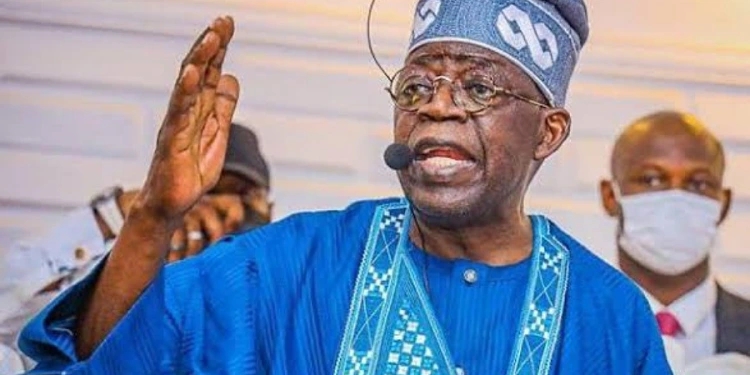Article Summary
- Bridging the gender gap in Nigeria could potentially contribute significantly to the country’s GDP.
- One percent increase in women’s contribution raises the level of GDP by 58.4 per cent.
- Economic inequality suffered by women in Nigeria hinders faster growth because women are arguably the engine of economic growth
Apart from Nigeria’s huge human and natural resources, another wealth of human resources that has the potential of growing the country’s GDP by at least 19% is the feminine gender, which has been grossly under-tapped.
According to various studies and reports, bridging the gender gap in Nigeria could potentially contribute significantly to the country’s GDP. Estimates suggest that closing the gender gap could potentially add billions of dollars to Nigeria’s economy.
A report by McKinsey Global Institute has projected that achieving gender equality in Nigeria could increase the country’s GDP by as much as 19%, or $90 billion by 2025.
Closing the gender gap by improving women’s access to education, healthcare, employment opportunities, and financial inclusion is seen as a critical driver of economic growth and development in Nigeria.
Recently, the director-general of the National Information Technology Development Agency (NITDA), Kashifu Inuwa Abdullahi, disclosed that Nigeria can potentially gain $230 billion in GDP growth by 2025 if equal participation of women in the digital economy is prioritized.
The United Nations acknowledges the significant contribution of Nigerian women to the country’s gross domestic product. Nigerian women play a crucial role in various sectors of the economy, including agriculture, trade, services, and informal enterprises.
Their contributions are recognized as essential drivers of economic growth and development in Nigeria.
Some progress has already been made
It is noteworthy that under the Buhari administration, gender parity has improved marginally, an indication that Nigeria is moving in the right direction. According to data from the World Economic Forum’s Global Gender Gap Index, Nigeria was 123rd out of 149 countries in the world in 2022, 16 positions better than in 2021.
In terms of educational attainment, Nigeria moved up 12 places from 146th position in 2021 to 134th in 2022. Regarding health and survival, Nigeria moved up to 97th position in 2022, from 104th in 2021. Improvement was also seen in political empowerment as the country moved up to 141st in 2022, from 149th in 2021.
The need for more action
All of the above indicators are positive but marginal, which is where the incoming government needs to strive to empower women more than ever, according to a social affairs analyst, Peter Ojake.
Also speaking to Nairametrics on this issue, economic analyst, Dr Sam Ekong, said:
- “Nigeria stands to increase her GDP by 23% with total women’s inclusion; women’s entrepreneurial skills have the potential to reduce the unemployment rate in Nigeria; facilitating inclusivity in key sectors raises the chances of bridging the inequality gap.”
Recently, the United Nations Secretary-General, Antonio Guterres called on countries, companies and institutions to adopt special measures and quotas to advance women’s equal participation and achieve rapid change.
- “As we recover from the pandemic, support and stimulus packages must target women and girls specifically, including through investments in women-owned businesses and the care economy. Pandemic recovery is our chance to leave behind generations of exclusion and inequalities,” Guterres said.
That call is accentuated even more for Nigerian women! The economic inequality suffered by women in Nigeria hinders faster growth because women are arguably the engine of economic growth.
More experts’ take on the matter
Reacting, Dr Zakari Mohammed, a lecturer at the Department of Banking and Finance at Auchi Polytechnic, said Poverty will be reduced to the barest minimum if the government will take appropriate measures to implement and enforce laws and policies directed towards enabling women to have the same rights as Nigerian men. He said:
- “There is every need to empower Nigerian women, particularly in the present global economy which recognizes the need for individuals to develop their potential and contribute to the overall development of the nation. Greater female participation in the economy will only add to Nigeria’s GDP.
- “It is time to stop trying to change women and to start changing the systems that prevent them from achieving their potential. Non-inclusion of women in economic activities only poses a drag on the economy, suppressing productive contributions.”
What you should know
According to one report by the World Bank, a one per cent increase in women’s contribution raises the level of GDP by 58.4 per cent.
Adding his voice to the conversation, Dr Ekumagba Eze, a lecturer at Nassarawa State University, said education remains an important part of development. “An increased participation in female education will improve the gender gap.
As it stands, 40% of Nigerian girls are out of school. Regardless, women are flying high in educational attainment with a 50.23% pass. An increase in educational participation will help the course of gender disparity in Nigeria.
To achieve this, the government should gear rigorous awareness towards increasing female participation in education. Improving women’s access to education is a vital step towards ensuring gender equality in Nigeria.
- “Empowering women and youths is central to promoting quick and equitable economic growth and long-term stability in any country. Gender equity increases people’s abilities to take advantage of opportunities and make informed choices.
- “These abilities are essential for societal and national transformation. Expanding women’s opportunities in public works, agriculture, finance and elsewhere accelerates economic growth. There is mounting evidence that women’s ability to fully enjoy human rights is integrally linked to their economic empowerment,” he stated.
A World Bank report said countries that invest in promoting the social and economic status of women tend to have lower poverty rates. Evidence has also shown that resources in women’s hands result in household expenditures that benefit children.
On the other hand, according to the World Bank, wider gender gaps in education (at primary and secondary levels) and in labour force participation have been estimated to reduce economic growth by 0.4 percentage points annually.
